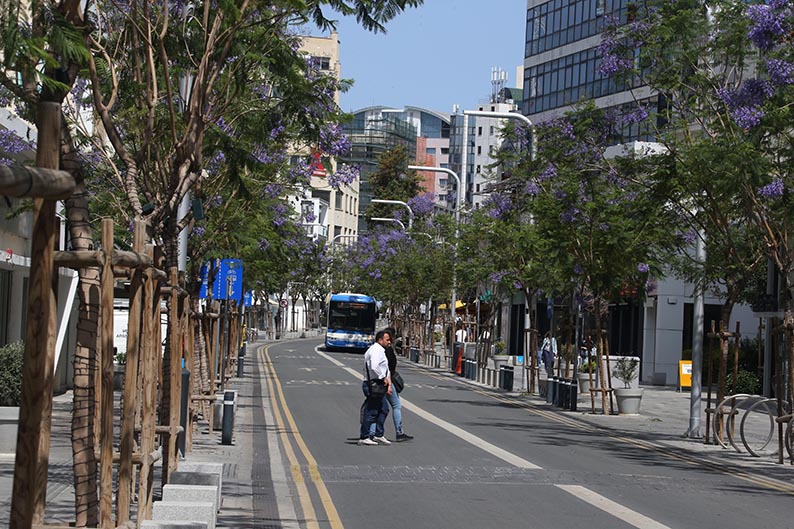Nicosia municipality said on Monday that its decision stands for partially reopening Makarios avenue to regular traffic, noting that they are simply waiting for the go-ahead from the police chief.
Deputy mayor Chrysanthos Fakas told a television channel they would “take into account” any feedback from the European Commission – which co-funded the restoration of the avenue on condition that it restricted traffic.
But, Fakas added, the decision to reopen the avenue did not depend on the reaction from Brussels; rather, the new traffic arrangements would apply once the chief of police gives the green light.
Last week Nicosia’s municipal council voted to open the street to all private vehicles on weekdays between 7am and 9pm.
Meanwhile between 9pm and 7am on weekdays and on weekends, the avenue will be used only by authorised vehicles – buses, taxis, residents and employees of the area, as it is at present.
The new traffic arrangements will apply from the Lycavitos police station up to and including Solomou square.
The news was welcomed by Nikos Vasiliou, head of the Committee for the Reopening of Makarios Avenue – a private lobby group.
“This first attempt corrects the erroneous decision that had rendered Makarios avenue non-accessible,” Vasiliou told media.
“And the simultaneous opening of [the adjacent] Bouboulinas and Mnasiadou streets allows for the wider movement of people, so that the centre of Nicosia extends from the new GSP stadium up to Ayios Antonios, as it ought to be.”
Asked about the reaction from Brussels, and the possibility of financial compensation, he said that on contacting the European Commission they got the answer that where a project does not yield the intended results, the authorities in charge of the project may make changes to it.
In a statement also on Monday, the Green party urged the police chief to withhold his OK on reopening the central Nicosia street to regular traffic.
Calling the municipal council’s decision “a backsliding”, the party said the move “undoes every step taken to make the city more humane and accessible, sacrificing public health, road safety and quality of life”.
It added: “Makariou avenue must not die from car exhaust fumes. Let’s keep it alive.”
The party said it would table the matter for discussion at the House transport committee.
It remained unclear what economic sanctions – if any – the European Commission might take. Media suggested Brussels could request the return of its share of funding for the restoration of the avenue – said to be €21 million.
And Brussels might ‘blacklist’ Nicosia municipality as an unreliable partner, making the municipality ineligible for future EU funding.
An unnamed government source told Phileleftheros newspaper that, given the restoration of the avenue is co-funded by the European Commission, the rules stipulate that no changes can be made that “alter the project’s philosophy” before five years have elapsed since the last disbursement of funds by Brussels.
In this case, the five-year cutoff date was reportedly around the end of 2028.






Click here to change your cookie preferences